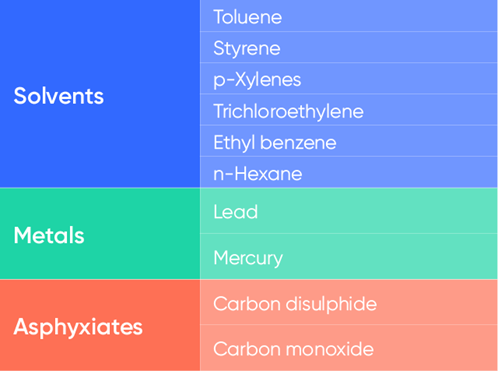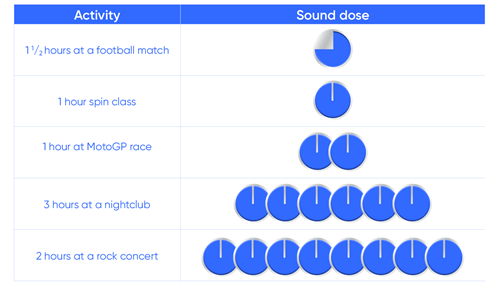Is my hearing at risk?
27 June 2023
Every day we are exposed to a range of sounds, and most of them will be at safe levels. But some sounds pose a risk to hearing, either because they’re too loud, or because we listen for too long! Some people are more risk than others because all the different sounds they hear at work, home, or during leisure activities add up to more than the safe listening limit, also known as your daily sound dose.
1. At work
Some occupations put you at greater risk of developing a noise-induced hearing loss1:
- Farmers
- Construction workers
- Automotive workers
- Machine operators
- Airline ground staff and railway workers
- Miners
- Military personnel
- Musicians and DJs
- Hospitality workers such as bar staff, chefs, and nightclub workers
You can also be at greater risk if you’re exposed to certain solvents or if you are taking certain medications. Here is a list of some common substances that can damage your hearing:
2. At home
Around the home, the main sources of risk are power tools and garden tools, like leaf blowers and lawn mowers. Some kitchen appliances can be noisy too but they’re often used for short periods of time, which means that they’re less likely to contribute to hearing damage.
Wherever possible, choose tools with lower sound levels. Some manufacturers provide this information on their packaging or on the tool itself – look for the ‘sound pressure level’, or you can check with Choice, which publishes the sound levels of a wide range of garden shredders, leaf blowers, hedge trimmers, and lawn edgers.
And whenever you’re around noisy equipment – whether you or someone else is using it, use earmuffs or earplugs to protect your hearing and reduce your daily sound dose.
3. Leisure Activities
Certain leisure activities involve loud sound and come with a greater risk of hearing damage. If you’re into live music or motor sports, you’re probably at higher risk than you realise. This table shows the sound dose you can expect from some different recreational activities2.
 If you’re going to live music, clubs, or gyms where the loud music is unavoidable and you want to keep your daily sound dose down, earplugs can be a good option. You can try disposable foam, silicon putty, or reusable earplugs that are specially designed for listening to music.
If you’re going to live music, clubs, or gyms where the loud music is unavoidable and you want to keep your daily sound dose down, earplugs can be a good option. You can try disposable foam, silicon putty, or reusable earplugs that are specially designed for listening to music.
If you’re a shooter, you’ll be exposed to sound levels that are extremely high and you should wear hearing protection at all times.
Headphone listening can also put your hearing at risk if you’re listening at loud volumes for extended periods of time. To keep your listening at a safe level, check out our Tips for safe listening using headphones and earbuds.
Know Your Noise Risk
Want to know more about your noise risk? The Know Your Noise website developed by the National Acoustic Laboratories includes a Noise Risk Calculator where you can enter information about your leisure and work activities and it will give you an estimate of your risk of hearing damage from noise exposure. You can also experiment with your results to see how changes in your lifestyle could affect your hearing risk.
Concerned about your hearing?
Consider scheduling a free 15-minute adult hearing check at a Hearing Australia Centre near you, or take our quick online hearing test to see if you may need further assistance.
1. Lewkowski, K., Heyworth, J. S., Li, I. W., Williams, W., McCausland, K., Gray, C., ... & Florath, I. (2019). Exposure to noise and ototoxic chemicals in the Australian workforce. Occup Environ Med, 76(5), 341-348.
2. www.noisedb.nal.gov.au
